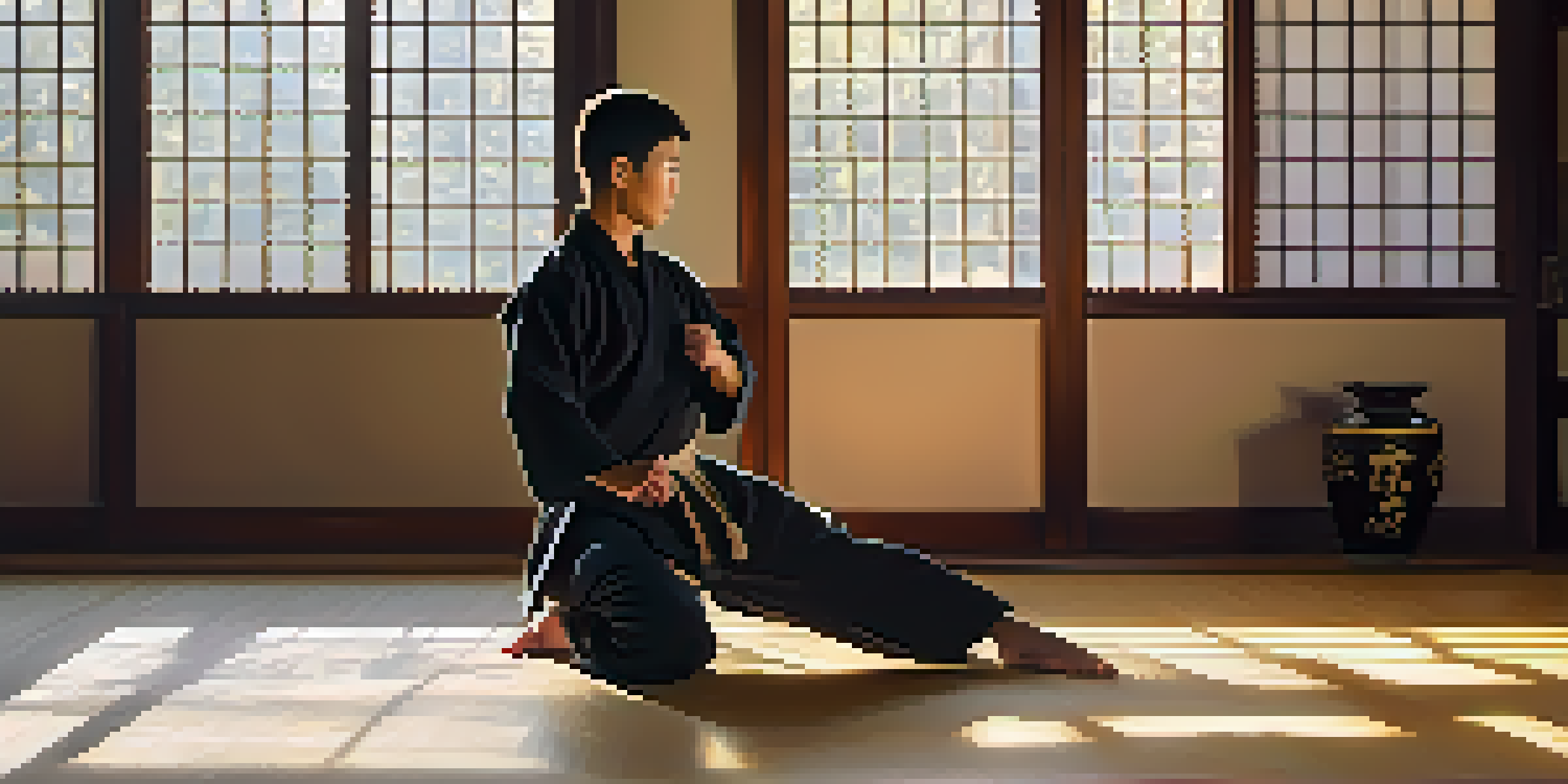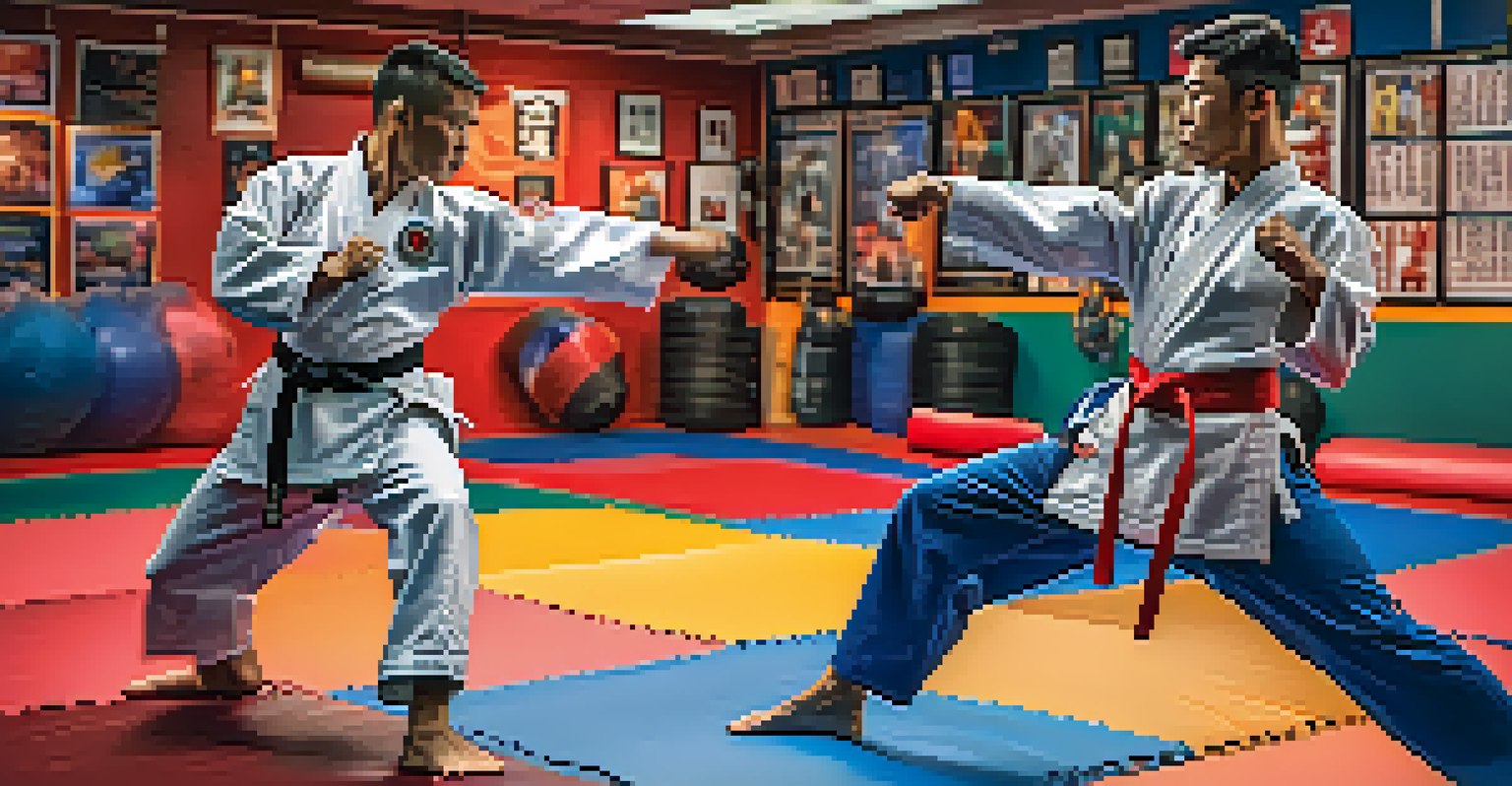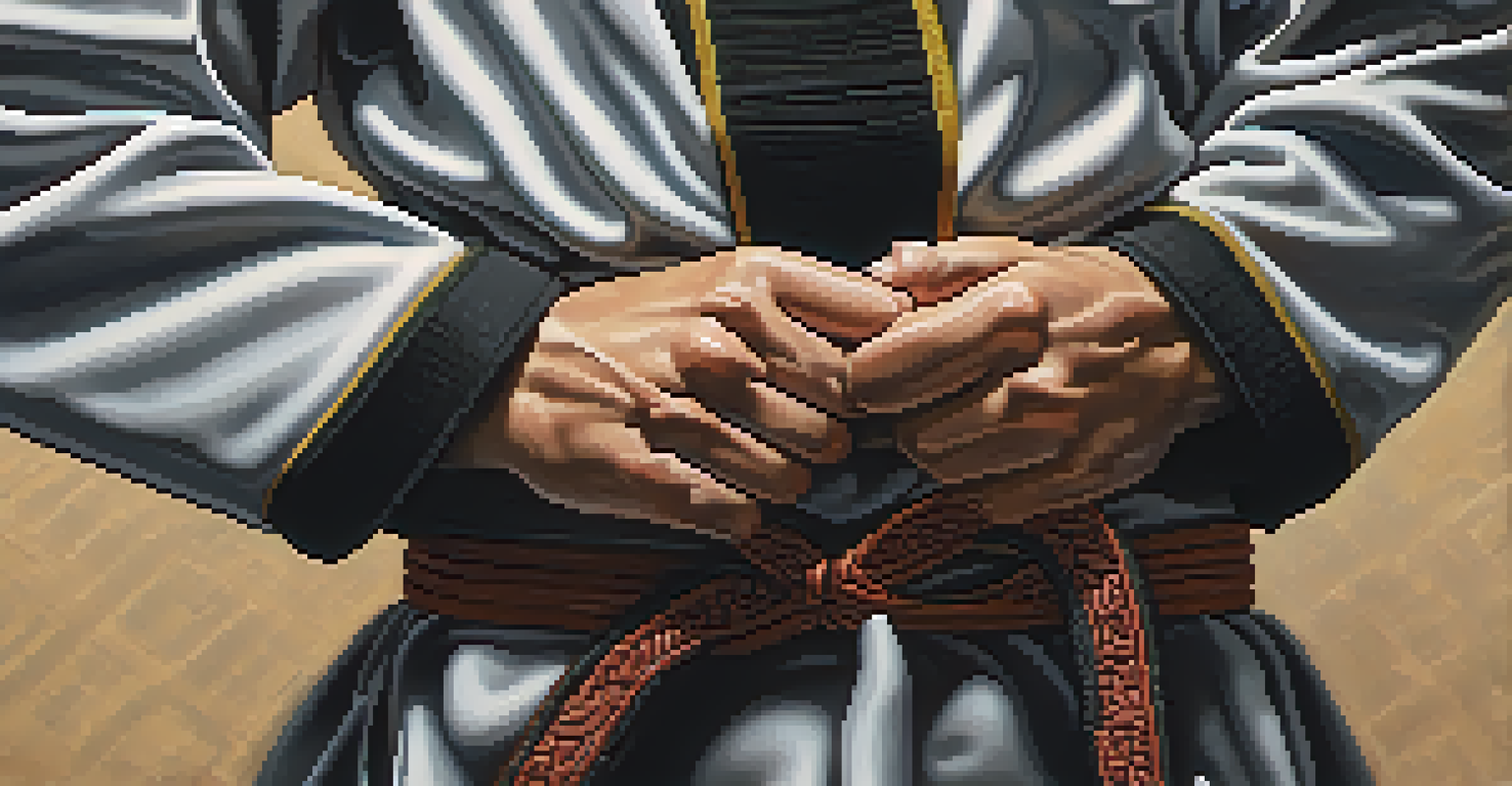Martial Arts Training: Cultivating Emotional Intelligence

Understanding Emotional Intelligence in Martial Arts
Emotional intelligence, or EQ, refers to our ability to recognize, understand, and manage our emotions and those of others. In martial arts, this skill is often overlooked but is crucial for both practice and competition. Training in martial arts encourages practitioners to be aware of their feelings and responses in various situations, leading to better emotional regulation.
The greatest weapon against stress is our ability to choose one thought over another.
For instance, when facing a challenging opponent or a tough training session, students learn to manage frustration and anxiety. These emotions can either hinder or enhance performance, depending on how they are handled. Through martial arts, individuals develop a greater awareness of their emotional triggers and learn techniques to cope effectively.
Moreover, martial arts emphasizes discipline and self-control, key components of emotional intelligence. As practitioners learn to control their bodies through movements and techniques, they also gain control over their emotional reactions, fostering a more balanced and resilient mindset.
Building Self-Awareness Through Training
Self-awareness is a cornerstone of emotional intelligence, and martial arts training is an excellent way to cultivate it. During practice, martial artists frequently engage in self-reflection, assessing their strengths and areas for improvement. This ongoing process allows them to become more in tune with their emotions and reactions during both training and real-life scenarios.

For example, a martial artist might notice feelings of anger during a sparring session. Instead of reacting impulsively, they learn to pause and reflect on these feelings, exploring their root causes. This ability to step back and analyze emotions is essential in developing a deeper understanding of oneself.
Emotional Intelligence in Training
Martial arts training enhances emotional intelligence by helping practitioners recognize and manage their emotions effectively.
As martial artists progress through their training, they often find that increased self-awareness leads to greater empathy towards others as well. Understanding their own emotions helps them better recognize and relate to the feelings of their training partners and opponents.
The Role of Discipline in Emotional Control
Discipline is a fundamental principle in martial arts, shaping both physical and mental training. This discipline extends beyond the dojo and into everyday life, influencing how practitioners manage their emotions. By adhering to a structured training regimen, individuals learn the importance of patience and perseverance, essential traits for emotional control.
Emotional intelligence is the ability to perceive, control, and evaluate emotions.
When faced with setbacks, such as losing a match or struggling to master a technique, martial artists are taught to remain calm and focused. This ability to maintain composure under pressure is directly tied to their emotional intelligence, allowing them to navigate challenges with a level head.
Ultimately, the discipline cultivated through martial arts training empowers individuals to react thoughtfully rather than impulsively. This fosters healthier relationships, as they can respond to conflicts with understanding rather than anger.
Conflict Resolution Skills Developed in Sparring
Sparring, or controlled fighting, is a common practice in martial arts that provides a unique opportunity to hone conflict resolution skills. During sparring sessions, practitioners learn to negotiate space and energy, which mirrors how we navigate interpersonal conflicts in daily life. This training helps cultivate empathy and understanding towards others' perspectives.
For instance, when sparring with a partner, martial artists must communicate non-verbally, gauging each other's movements and reactions. This interaction enhances their ability to read social cues and respond appropriately, vital components of emotional intelligence.
Discipline Fosters Emotional Control
The discipline learned in martial arts empowers individuals to maintain composure and respond thoughtfully during emotional challenges.
Moreover, sparring teaches the importance of compromise and adaptability. As practitioners engage in this dynamic exchange, they learn to adjust their strategies in response to their partner's actions, reinforcing the idea that effective resolution often involves collaboration and understanding.
Mindfulness and Focus in Martial Arts Practice
Mindfulness is a critical aspect of martial arts training, promoting heightened awareness of the present moment. This practice encourages students to focus on their breathing, movements, and emotions, leading to improved emotional regulation. By cultivating mindfulness, martial artists can better manage stress and anxiety, both on and off the mat.
In a typical training session, practitioners might engage in meditation or breathing exercises that help center their thoughts. This mental clarity allows them to approach challenges with a calm and composed mindset, enhancing their overall performance. Additionally, mindfulness fosters resilience, as individuals learn to acknowledge their feelings without being overwhelmed by them.
As martial artists develop their mindfulness practice, they often find that it translates into other areas of their lives. Increased focus and emotional regulation can lead to better decision-making and interpersonal relationships, providing a solid foundation for emotional intelligence.
Empathy Development Through Partner Training
Training with partners is a core element of martial arts that significantly contributes to the development of empathy. As practitioners work together, they must learn to respect each other's boundaries and comfort levels, fostering a deeper understanding of their partners' emotions. This experience enhances their ability to connect with others on an emotional level.
For instance, while practicing techniques, martial artists must communicate effectively with their partners to ensure safety and mutual respect. This ongoing interaction helps them become more attuned to the feelings and reactions of others, reinforcing the importance of empathy in both training and daily life.
Empathy Grows Through Partner Work
Training with partners in martial arts cultivates empathy, as practitioners learn to understand and respect each other's emotional boundaries.
Furthermore, this shared experience of learning and growing together cultivates a supportive environment. Practitioners often encourage one another, fostering a sense of community that enhances emotional intelligence by promoting compassion and understanding.
Real-Life Applications of Emotional Intelligence from Martial Arts
The skills developed through martial arts training extend far beyond the dojo, impacting various aspects of life. Practitioners often find that their enhanced emotional intelligence improves their relationships, work performance, and overall well-being. The ability to manage emotions and connect with others is invaluable in both personal and professional settings.
For example, an individual with strong emotional intelligence may find it easier to navigate workplace conflicts or build rapport with colleagues. They can approach challenges with a balanced perspective, leading to effective problem-solving and collaboration. This adaptability is a direct result of their martial arts training.

Additionally, the confidence gained from mastering martial arts techniques translates into other areas of life. Practitioners often feel more empowered to express their emotions and stand up for themselves, leading to healthier interactions and a more fulfilling life.